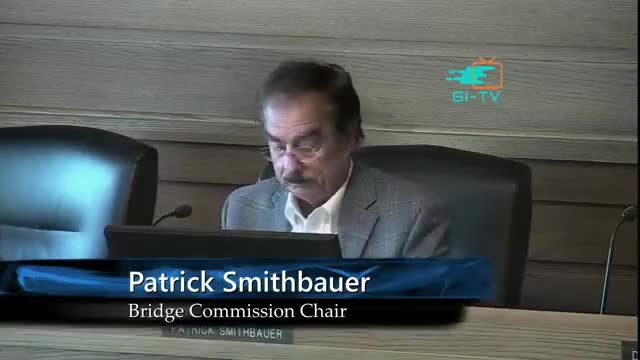Grosse Ile Bridge posts monthly surplus; commissioners briefed on April 2026 bond payment and accounting treatment
Get AI-powered insights, summaries, and transcripts
Subscribe
Summary
Finance staff reported roughly $354,000 in monthly revenue and $125,000 in expenses, leaving net operating cash for the bridge. Commissioners were briefed on a $1.1 million bond payment due April 1, 2026, and discussed how capital engineering costs are shown in operating statements.
Township finance staff reported that the toll bridge operation had about $354,000 in revenue and $125,000 in expenses for the month, producing roughly $228,000 in excess revenue.
The report, presented by Teresa McLaughlin, said the township is accumulating cash between its bank accounts and Michigan-class investments to ensure it can meet obligations, including a bond payment due April 1, 2026, that McLaughlin said is “just over $1,100,000.” She said that the first payment is larger because of the interest that accrued from the bond sale in February 2025 until the first payment date. Subsequent principal payments, she said, will be due each April 1 with interest paid semiannually on April 1 and October 1.
Commission members raised accounting questions during the presentation, chiefly about why professional services tied to the bridge reconstruction appear on the monthly profit-and-loss statement rather than being shown on the balance sheet as capital expenditures. McLaughlin explained the township prepares budgets on a cash basis and posts engineering costs to the P&L during the year; at year-end she said she moves those costs to the balance sheet as capital assets and reduces the liability when principal payments are recorded.
Commissioners noted details in the bond budget: the township used about $21 million in bond proceeds; approximately $13.5 million was allocated to purchase the toll bridge, and engineering was initially budgeted at $7.5 million but has been quoted at about $3.8 million to date. McLaughlin said property-tax revenues expected with winter tax bills will begin showing up in December and are part of the long-term plan to cover debt service.
Commission discussion also clarified several balance-sheet items: deferred revenues for bridge passes reflect prepaid balances on customer pass accounts (examples discussed included $60 or $120 pass loads), and customer deposits correspond to $25–$28 tag-deposit fees. Commissioners pressed staff to provide a cash schedule showing the balance set aside specifically to meet the April 2026 bond payment; McLaughlin said she will send that schedule to commissioners.
Commission members and staff agreed to continue monitoring operations and capital accounting practices and to discuss technical accounting presentation offline so staff can preserve the month-by-month cash visibility they said the township prefers.
Ending: Commissioners did not take a formal vote on accounting policy changes at the meeting; staff said the year-end close will include reclassifying engineering costs to capital assets.
